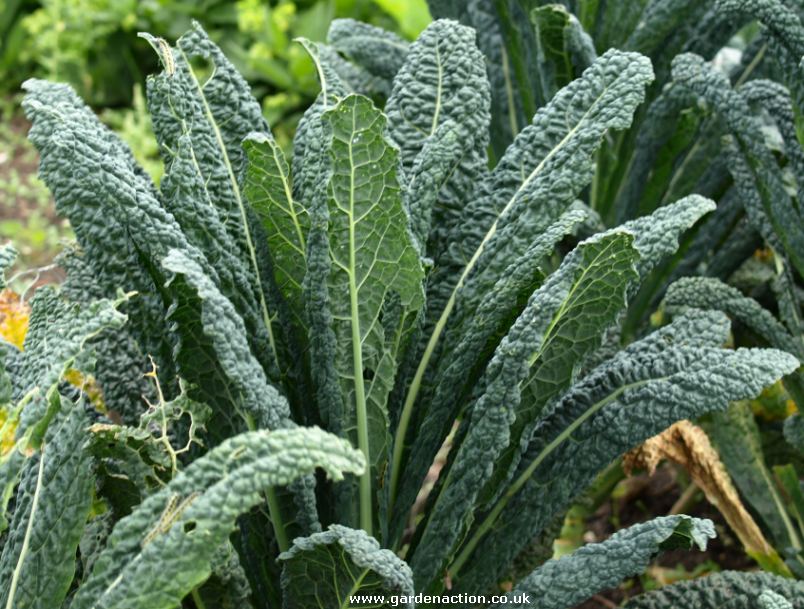
While not as well researched as some of its fellow cruciferous vegetables like broccoli or cabbage, kale is a food that you can count on for some unsurpassed health benefits, if for no other reason than its exceptional nutrient richness. In our own website food rating system, kale scored 4 "excellents," 6 "very goods," and 10 "goods" - for a total of 20 standout categories of nutrient richness! That achievement is difficult for most foods to match.
What's New and Beneficial About Kale
- Kale can provide you with some special cholesterol-lowering benefits if you will cook it by steaming. The fiber-related components in kale do a better job of binding together with bile acids in your digestive tract when they've been steamed. When this binding process takes place, it's easier for bile acids to be excreted, and the result is a lowering of your cholesterol levels. Raw kale still has cholesterol-lowering ability—just not as much.
- Kale's risk-lowering benefits for cancer have recently been extended to at least five different types of cancer. These types include cancer of the bladder, breast, colon, ovary, and prostate. Isothiocyanates (ITCs) made from glucosinolates in kale play a primary role in achieving these risk-lowering benefits.
- Kale is now recognized as providing comprehensive support for the body's detoxification system. New research has shown that the ITCs made from kale's glucosinolates can help regulate detox at a genetic level.
- Researchers can now identify over 45 different flavonoids in kale. With kaempferol and quercetin heading the list, kale's flavonoids combine both antioxidant and anti-inflammatory benefits in way that gives kale a leading dietary role with respect to avoidance of chronic inflammation and oxidative stress.
WHFoods Recommendations
You'll want to include kale as one of the cruciferous vegetables you eat on a regular basis if you want to receive the fantastic health benefits provided by the cruciferous vegetable family. At a minimum, include cruciferous vegetables as part of your diet 2-3 times per week, and make the serving size at least 1-1/2 cups. Even better from a health standpoint, enjoy kale and other vegetables from the cruciferous vegetable group 4-5 times per week, and increase your serving size to 2 cups.Cruciferous Vegetable Benefits
All cruciferous vegetables—including kale—provide integrated nourishment across a wide variety of nutritional categories and provide broad support across a wide variety of body systems as well. For more on cruciferous vegetables see:Health Benefits
Kale provides numerous health benefits including:- Antioxidant properties
- Anti-inflammatory benefits
- Cancer prevention
- Cardiovascular support
- Detoxification benefits
Nutrient Profile
Kale's special mix of cancer-preventing glucosinolates has been the hottest area of research on this cruciferous vegetable. Kale is an especially rich source of glucosinolates, and once kale is eaten and digested, these glucosinolates can be converted by the body into cancer preventive compounds. Some of this conversion process can also take place in the food itself, prior to consumption.Also worth noting in kale's nutritional profile is its vitamin K content. Kale contains nearly twice the amount of vitamin K as most of its fellow cruciferous vegetables.
In addition to the above-cited nutrients, according to our Food Rating System, kale is an excellent source of vitamin A (in the form of carotenoids), vitamin C, vitamin K, copper, and manganese. It is a very good source of vitamin B6, dietary fiber, calcium, potassium, vitamin E, vitamin B2, iron, magnesium, vitamin B1, omega-3 fatty acids phosphorus, protein, folate, and niacin.
Kale as a "Goitrogenic" Food
Kale is sometimes referred to as a "goitrogenic" food. Yet, contrary to popular belief, according to the latest studies, foods themselves—kale included—are not "goitrogenic" in the sense of causing goiter whenever they are consumed, or even when they are consumed in excess. In fact, most foods that are commonly called "goitrogenic"—such as the cruciferous vegetables (including kale, broccoli, and cauliflower) and soyfoods—do not interfere with thyroid function in healthy persons even when they are consumed on a daily basis. Nor is it scientifically correct to say that foods "contain goitrogens," at least not if you are thinking about goitrogens as a category of substances like proteins, carbohydrates, or vitamins. With respect to the health of our thyroid gland, all that can be contained in a food are nutrients that provide us with a variety of health benefits but which, under certain circumstances, can also interfere with thyroid function. The term "goitrogenic food" makes it sound as if something is wrong with the food, but that is simply not the case. What causes problems for certain individuals is not the food itself but the mismatched nature of certain substances within the food to their unique health circumstances.http://whfoods.org/
Click Here For More Articles

No comments:
Post a Comment